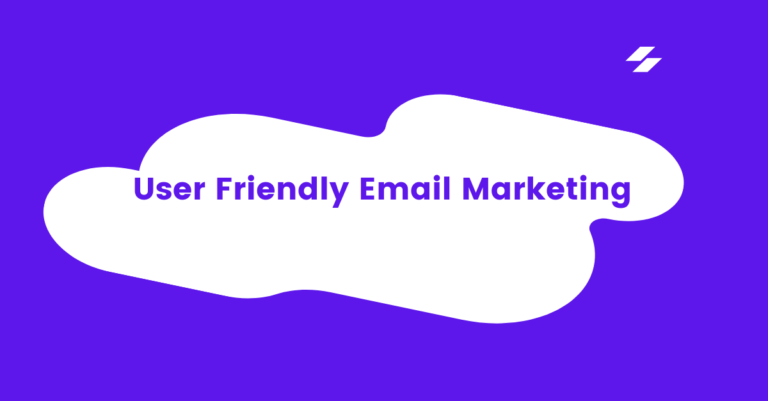![]()
![]()
![]()
Top Email Marketing Platforms
Introduction
In today’s digital world, email marketing is an essential tool for businesses of all sizes. Whether you are a small business owner or a large enterprise, reaching your audience through email remains one of the most effective ways to drive engagement, boost sales, and build lasting relationships with your customers. But to make the most out of your email campaigns, choosing the right email marketing platform is critical. There are numerous platforms out there, each offering unique features tailored to different needs.
In this article, we’ll explore the Top Email Marketing Platforms available in the market today, breaking down the features, pros, cons, and pricing of each one. Let’s dive in and find the best fit for your business.
Outline
- Introduction
- Why Email Marketing Is Still Important
- Factors to Consider When Choosing an Email Marketing Platform
- Ease of Use
- Automation Features
- Analytics and Reporting
- Integration with Other Tools
- Top Email Marketing Platforms Overview
- Mailchimp
- Constant Contact
- HubSpot
- ConvertKit
- ActiveCampaign
- Mailchimp: A Popular Choice for All Levels
- Key Features
- Pricing Plans
- Pros and Cons
- Constant Contact: Ideal for Small Businesses
- Key Features
- Pricing Plans
- Pros and Cons
- HubSpot: A Robust All-in-One Solution
- Key Features
- Pricing Plans
- Pros and Cons
- ConvertKit: Best for Content Creators
- Key Features
- Pricing Plans
- Pros and Cons
- ActiveCampaign: Powerful Automation Tools
- Key Features
- Pricing Plans
- Pros and Cons
- Comparing Email Marketing Platforms
- Conclusion
- FAQs
Why Email Marketing Is Still Important
Despite the rise of social media, email marketing remains a highly effective way to reach your audience. Email allows you to communicate directly with your subscribers, delivering personalized content straight to their inboxes. With the right platform, you can automate these emails, segment your audience, and track performance—all crucial elements in growing your business.
Factors to Consider When Choosing
Choosing the right email marketing platform depends on several factors. Let’s take a look at some key elements you should consider:
Ease of Use
A user-friendly platform is essential, especially for those who are new to email marketing. You want a tool that allows you to create, design, and send emails effortlessly without a steep learning curve.
Automation Features
Automation is key to a successful email marketing strategy. Look for platforms that offer robust automation features such as autoresponders, drip campaigns, and behavioral triggers. These tools save time and ensure that you stay connected with your audience without manual effort.
Analytics and Reporting
Understanding how your campaigns are performing is crucial for making informed decisions. Look for platforms that offer detailed analytics on open rates, click-through rates, conversions, and other key metrics.
Integration with Other Tools
Your email marketing platform should seamlessly integrate with your other tools, such as CRM software, eCommerce platforms, and social media accounts. This ensures that you have a holistic approach to marketing and customer engagement.
Top Email Marketing Platforms Overview
Let’s explore some of the leading platforms in the email marketing space, highlighting their features, pricing, and who they are best suited for.
Mailchimp: A Popular Choice for All Levels
Mailchimp is one of the most widely used email marketing platforms, known for its ease of use and robust feature set.
Key Features
- Drag-and-drop email builder
- Email automation
- Detailed analytics
- A/B testing
- Free plan for up to 500 contacts
Pricing Plans
- Free Plan: Up to 500 contacts
- Essentials Plan: Starting at $13/month
- Standard Plan: Starting at $20/month
Pros and Cons
- Pros: Easy to use, great for beginners, good free plan
- Cons: Limited automation features in lower-tier plans
Constant Contact: Ideal for Small Businesses
Constant Contact is a great platform for small businesses looking for a straightforward solution to manage their email marketing.
Key Features
- Customizable email templates
- Social media integration
- Real-time tracking
- Event marketing tools
Pricing Plans
- Email Plan: Starting at $9.99/month
- Email Plus Plan: Starting at $45/month
Pros and Cons
- Pros: Excellent customer support, intuitive interface
- Cons: Limited advanced automation features
HubSpot: A Robust All-in-One Solution
HubSpot offers a comprehensive suite of marketing tools, including email marketing. It’s ideal for businesses looking for a robust all-in-one platform.
Key Features
- CRM integration
- Email automation
- Smart personalization
- Advanced reporting
Pricing Plans
- Free Plan: Up to 2,000 email sends per month
- Starter Plan: Starting at $50/month
- Professional Plan: Starting at $800/month
Pros and Cons
- Pros: Powerful automation, excellent integration with CRM
- Cons: Can be expensive for small businesses
ConvertKit: Best for Content Creators
ConvertKit is designed specifically for bloggers, YouTubers, and other content creators who want to build their audience and monetize their email lists.
Key Features
- Landing page builder
- Email automation
- Subscriber tagging
- Easy-to-use interface
Pricing Plans
- Free Plan: Up to 1,000 subscribers
- Creator Plan: Starting at $9/month
- Creator Pro: Starting at $25/month
Pros and Cons
- Pros: Best for creators, simple yet powerful automation
- Cons: Limited design customization
ActiveCampaign: Powerful Automation Tools
ActiveCampaign is well-known for its advanced automation capabilities, making it an excellent choice for businesses that want to automate complex workflows.
Key Features
- Advanced automation
- CRM integration
- Dynamic content personalization
- Detailed analytics
Pricing Plans
- Lite Plan: Starting at $29/month
- Plus Plan: Starting at $49/month
- Professional Plan: Starting at $149/month
Pros and Cons
- Pros: Industry-leading automation, excellent customer support
- Cons: Can be overwhelming for beginners
Comparing Email Marketing Platforms
When choosing between these platforms, consider your specific needs. For instance, Mailchimp is great for beginners and small businesses, while HubSpot and ActiveCampaign are better suited for larger enterprises with complex automation needs. ConvertKit is the go-to platform for content creators, and Constant Contact shines for small businesses needing a straightforward tool.
Conclusion
The best email marketing platform for your business will depend on your specific needs and preferences. By carefully considering the factors outlined above and evaluating the platforms listed in this guide, you can choose a solution that helps you achieve your marketing goals.
Additional Tips:
- Start with a free plan: Many platforms offer free plans that allow you to test their features before committing to a paid plan.
- Consider your email list size: Some platforms may have limitations on the number of subscribers you can have on their free or lower-tier plans.
- Look for a platform that grows with your business: As your business grows, you may need a platform with more advanced features and capabilities.
By following these tips and carefully evaluating your options, you can find the perfect email marketing platform to help you reach your audience and drive results.



